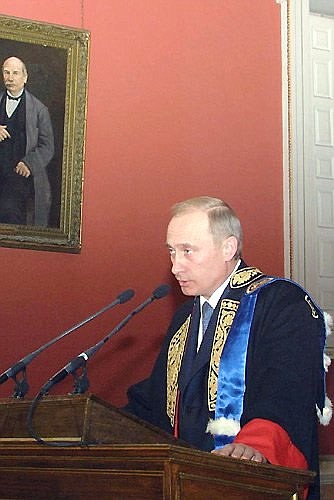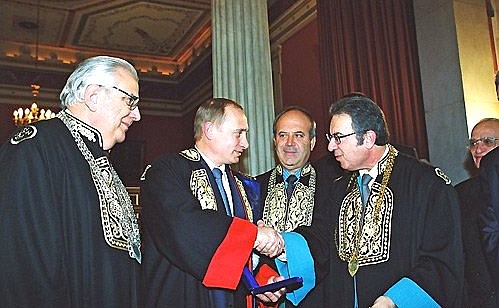At the ceremony in the University’s assembly hall, Mr Putin also received a doctor’s mantle and ribbon.
The President had chosen two main subjects for his speech – the past and present history of Russia, and new global challenges posed by terrorism and extremism.
He stressed that the choice Russia had made 10 years ago put an end to global confrontation and paved the way for a united Europe, freedom and democracy. But the important thing, he said, was that the Russian people found they were an integral part of the world, with Russian culture, which intrinsically combines Byzantine’s spirituality and European humanistic values, helping that awareness in no small way.
Mr Putin also said the world community should not allow itself to be drawn into a conflict of faiths which the terrorists are deliberately stoking up to appeal to the average person with limited historical or legal knowledge. He recalled that Russia first encountered propaganda abusing Islamic slogans in Chechnya.
He called poverty and social despair a ready soil for fanaticism and extremism, for kindling regional and inter-ethnic conflicts. He recalled the tragic fate of many Balkan peoples. Everybody saw, he said, that Europe would never become really stable and safe until it pieced together the “Balkan puzzle”.
Russia, the President said, had proposed to hold an international conference on the problems of south-eastern Europe. That forum should not only help find approaches to a political settlement, but also contribute to an economic revival of the Balkans.
Greece and Russia could take the lead in fostering cooperation in southern Europe, Mr Putin said.

